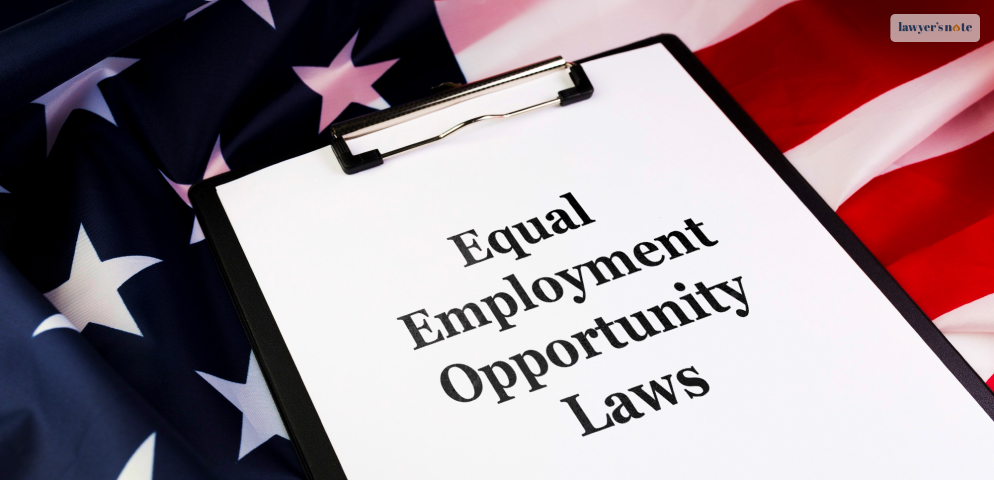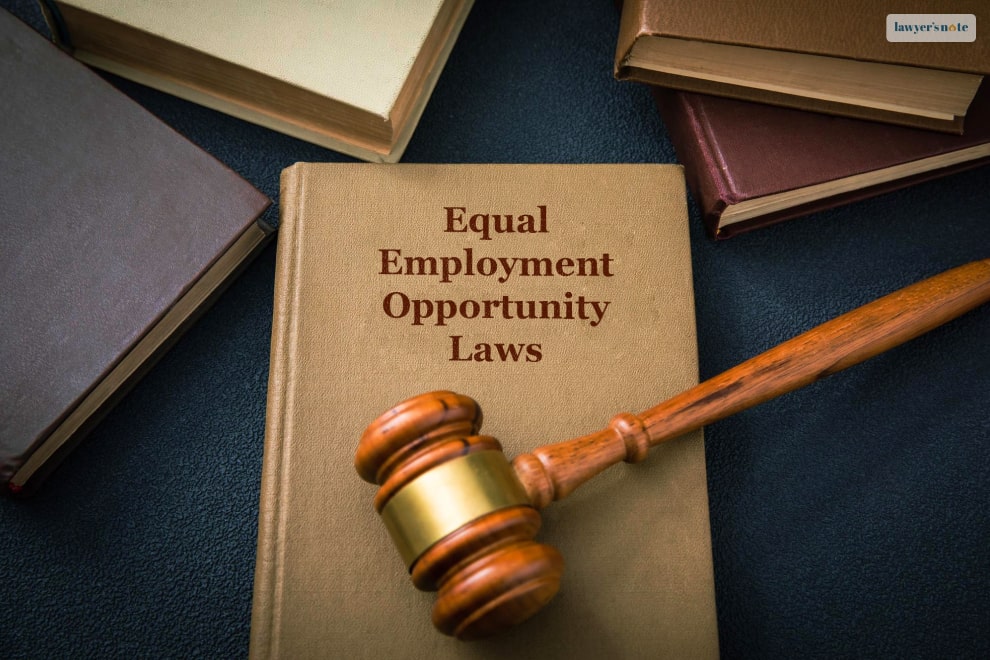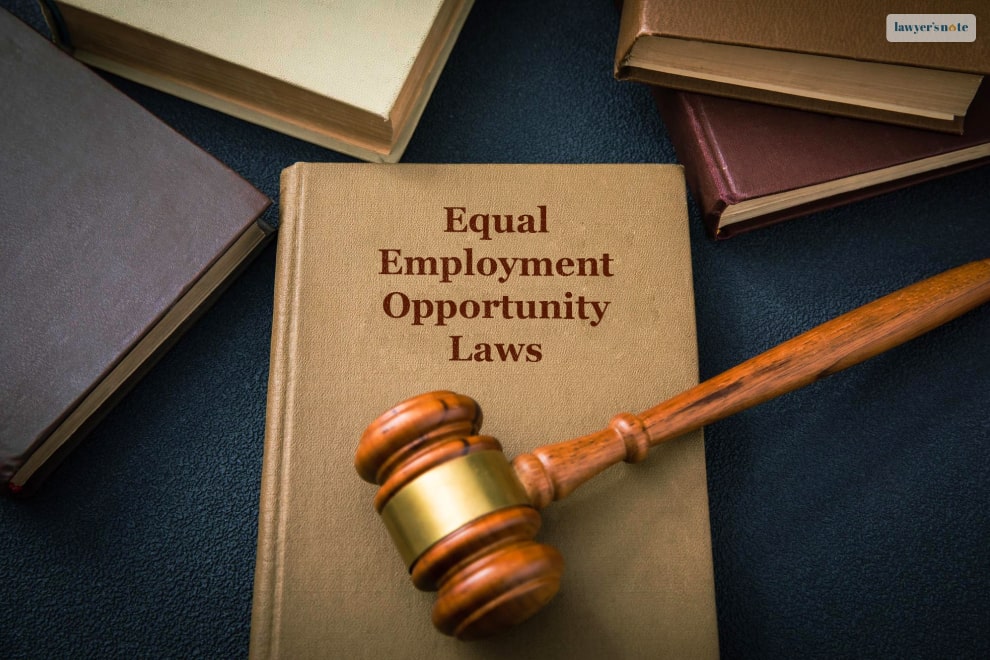Why You Need Parole Lawyers in Georgia: Expert Legal Support for Successful Outcomes
Navigating the complexities of the parole system in Georgia can be a daunting task. So, whether you seek parole for....
1418 Views

We all want to be treated equally, irrespective of our sex, gender, religion, or other sociological factors. Similarly, we also deserve to be treated fairly and with equality while we are entering the workforce.
In this article, we will be discussing the equal employment opportunity laws that are known to protect job applicants and employees situated within the United States.

Equal Employment Opportunity (EEO) is like the superhero of the workplace, fighting for fairness and equality. That’s where EEO swoops in to save the day.
It’s like the referee in a game, making sure that no one cheats by discriminating against candidates or employees based on those protected categories we mentioned earlier.
Imagine you are a hiring manager, and you have two applicants- one’s a wizard at the job, and the other’s just starting out but shows tremendous potential. Equal Employment Opportunity says you can’t pick one over the other because of their age or the fact that they have a cool accent from another country. It’s all about playing the field.
But EEO doesn’t stop at hiring. It’s there to protect you while you’re on the job, too. Let’s say you’ve been at your company for a while, and you suddenly need a medical leave for a disability. Equal employment opportunity can’t give you the boot because of your health conditions. It’s your right to get the same opportunities as your coworkers.
And the best part? EEO isn’t just a rulebook collecting dust on a shelf somewhere. Employers have to actively promote equal employment opportunity, create policies to prevent discrimination and train their employees about it. It’s like a constant reminder that we’re all in this together, working towards a fair and equal workplace.
So, the next time you’re job hunting or working at your dream gig, remember equal employment opportunity- your friendly neighborhood protector of fairness and equality in the world of employment. It’s your right to have an equal shot at success, and EEO is there to make sure that happens.

Equal Employment Opportunity (EEO) laws are like knights in shining armor for job applicants, protecting them from discrimination and ensuring a level playing field. Imagine you’re on a quest for the perfect job; these laws are your trusty sword and shield. Let’s dive into how they come to your rescue:
First and foremost, EEO laws are your guardian against discrimination. They make sure that employers can’t reject your application because of your race, color, religion, sex, national origin, age, disability, or genetic information. It’s like having a superhero team defending you from unfair treatment.
EEO laws require employers to evaluate job applicants solely based on their skills, qualifications, and experience. They can’t toss your application aside just because they don’t like your name or the way you dress. It’s all about giving you a fighting chance.
Employers can’t secretly handpick their favorites without giving others a chance to compete. It’s like a grand tournament where everyone’s invited.
If you have a disability and need some adjustments to the application process or the job itself, EEO laws require employers to provide those “reasonable accommodations.” They make sure that disabilities don’t hinder your chances of landing the job you want. It’s like having a sidekick that helps you overcome challenges.
EEO laws also protect your personal information. Employers can’t go digging into your medical history or genetic makeup without your permission. Your privacy is your fortress, and EEO laws are there to guard it.
In a nutshell, EEO laws are your allies, making sure that your job application journey is fair and free from discrimination. They’re like the ultimate sidekick, helping you navigate the complex world of job hunting and ensuring that your skills and qualifications are what really matter. So, gear up and embrace your job-seeking adventure with confidence, knowing that EEO laws have your back!

Equal employment opportunities laws in the United States are like the rules of a fair game. They’re designed to ensure that when it comes to employment, everyone gets a fair share, regardless of who they are. So, grab a seat because we’re going to break down the key equal employment opportunities laws.
Think of this law as the granddaddy of EEO laws. It’s like the Constitution for your workplace. Title VII makes it illegal for employers to discriminate against employees or job applicants based on their race, color, religion, sex, or national origin. It’s all about giving everyone a fair shot, no matter where they come from or what they believe.
ADEA is like your guardian against age-related discrimination. It says that if you are over 40 or older, an employer cannot treat you unfairly because of your age. You are like a fine wine, getting better with time, and ADEA makes sure you’re valued for your experience.
This law is your defender if you have a disability. It says that employers can’t discriminate against you because of your disability, and they must make reasonable accommodations to help you do your job. It is like having a teammate always having your back.
PDA ensures that pregnancy and related medical conditions can’t be used against you in the workplace. You’re not alone on your journey to parenthood- PDA ensures you’re treated fairly during this special time.
GINA is like your personal shield against genetic discrimination. It prevents employers from using your genetic information to make employment decisions. Your genes are your own secret, and GINA keeps them safe.
EPA is your advocate for equal pay. It says that men and women should get the same pay for doing the same job. It’s all about ensuring that your paycheck is fair, regardless of your gender.
These EEO laws are not just words on paper; they are your allies in the workplace. They ensure that when it comes to getting a job, keeping a job, and getting paid, it’s your skills, qualifications, and performance that matter most- not your age, gender, race, religion, disability, or genetic makeup. So, in the game of work, you’re playing on an even field, thanks to these essential equal employment opportunities laws.

Federal equal employment opportunity laws are like a superhero’s shield, designed to protect a wide range of workers in the United States from discrimination in the workplace. They’re not just there to safeguard one specific group; they’ve got a broad reach.
First up, we have the heroes who battle against racial discrimination. These laws protect individuals of all races and skin colors. Whether you’re Black, White, Asian, Latino, or anything in between, you’re covered. The goal? To make sure no one’s treated unfairly because of their ethnicity or the color of their skin.
Your faith and beliefs are like a precious treasure chest, and EEO laws ensure that your religious beliefs are respected. It doesn’t matter if you’re Christian, Muslim, Jewish, Hindu, or follow any other religion- you are protected from religious discrimination.
These laws are champions in the fight against gender-based discrimination. Whether you are a male, female, transgender, or non-binary, you have the right to work in an environment where your gender doesn’t determine your opportunities or how you’re treated.
EEO laws ensure that where you or your ancestors come from isn’t used against you. Whether you were born in the USA or immigrated here, you are protected. No one should face discrimination based on their country of origin or ethnicity.
Age may be just a number, but EEO laws ensure that if you are 40 years or older, your age won’t be a barrier to employment opportunities.
If you have a disability, EEO laws are your allies. They make sure you’re not treated unfairly due to your disability and that your employer provides reasonable accommodations to help you do your job effectively.
Whether you’ve taken a DNA test for health reasons or curiosity, your genes are your own business, and employers can’t use them to make decisions about your job.
The journey to parenthood is a special one, and EEO laws ensure that pregnancy-related discrimination doesn’t stand in your way.
So, there you have it – a diverse cast of characters protected by federal Equal Employment Opportunity laws. They’re like the defenders of fairness, making sure that in the workplace, everyone has an equal chance to shine, regardless of their race, religion, gender, age, disability, or genetic makeup. Together, these laws create a level playing field where your skills, talents, and abilities are what truly matter.
Here are some of the frequently asked questions related to equal employment opportunities mentioned below:
EEO is a principle and set of laws that promote fair and equal treatment of all individuals in the workplace, regardless of their race, color, religion, sex, national origin, age, disability, or genetic information.
A reasonable accommodation is an adjustment or modification made by employers to ensure that individuals with disabilities can perform their job duties effectively. Examples include providing accessible workspaces or allowing flexible work hours.
Age should not be a factor in employment decisions if you are 40 or older, as the Age Discrimination in Employment Act (ADEA) protects older workers from age-related discrimination.
If you witness discrimination, you can report it to your HR department or management. Many companies have policies and procedures in place to address such issues.
Employers can promote EEO by implementing fair hiring practices, providing training on EEO laws, creating diverse and inclusive environments, and addressing complaints promptly and effectively.
So, the next time you’re job hunting or working at your dream gig, remember equal employment opportunity- your friendly neighborhood protector of fairness and equality in the world of employment. It’s your right to have an equal shot at success, and EEO is there to make sure that happens.
Read Also:

Navigating the complexities of the parole system in Georgia can be a daunting task. So, whether you seek parole for....

The Arizona Rules of Civil Procedure are the basis for the civil framework in the state. They govern the legal....
By LawyersNote
30 Jan 2024
Firing an employee for a valid reason is termed "termination for cause." This dismissal occurs due to misconduct, fraud, or....
By LawyersNote
12 Jan 2024